Welcome to the pCon community: SCAB
Configurable data from SCAB is now available to the pCon community. Log in to pCon.login to request the OFML data of the company.
Request SCAB product data via pCon.login
The Timeless Elegance of SCAB: A Legacy in Furniture Design
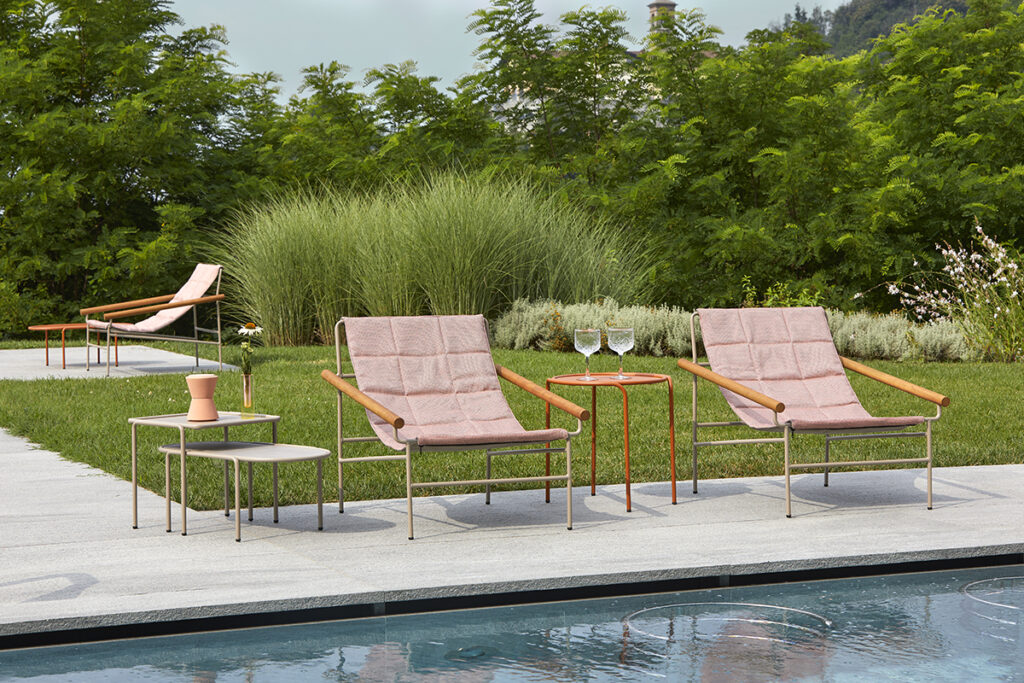
SCAB is more than just a brand; it is a family story that spans sixty years of dedication and passion for the world of furniture. Now in its third generation, SCAB continues to embrace an entrepreneurial spirit that is both inclusive and open to challenges.
For professional interior designers and architects, SCAB represents a blend of tradition, innovation, and meticulous craftsmanship, offering timeless pieces that enhance any living space. You can now explore SCAB’s collections in pCon to discover the perfect elements to complete your design projects with elegance and functionality.
SCAB’s design philosophy focuses on conviviality and sharing. Whether in public or private spaces, or outdoor areas like terraces and gardens, SCAB products bring people together and create intimacy. Their designs embody the desire to improve lives and foster strong bonds through harmonious environments defined by pleasantness and hospitality.
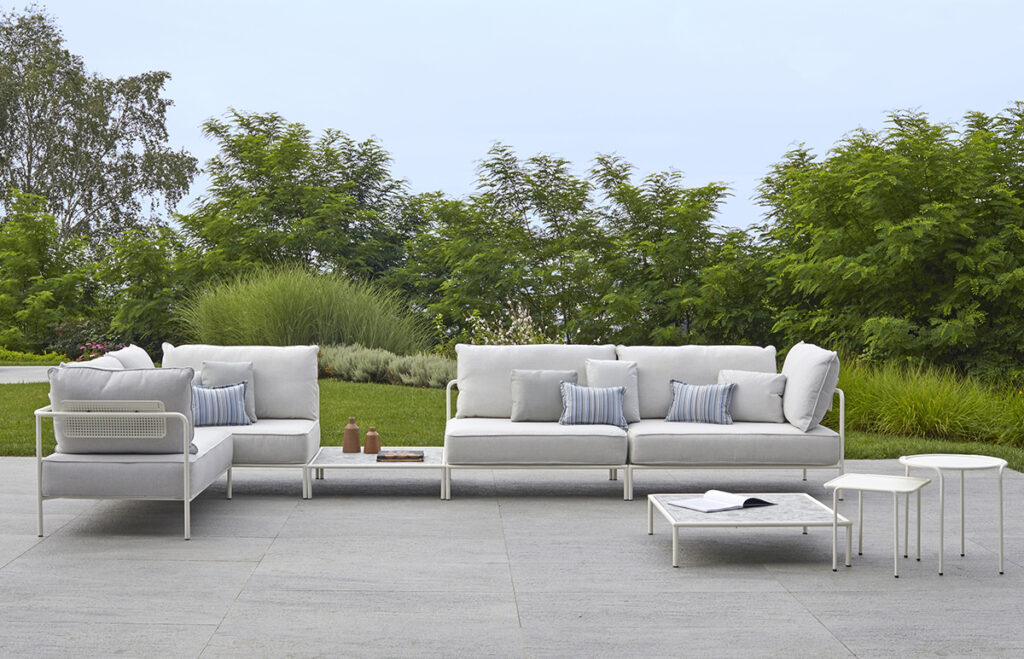
Origins in a Time of Transformation
SCAB was founded during a period of great transformation. Post-war Italy was evolving into a global design hub, and it was in this optimistic and reborn climate that a young Francesco Battaglia had a successful intuition: to launch a production of furniture and housewares aimed at the rising middle class. In 1957, SCAB and its first warehouse in Coccaglio, Brescia, came to life amidst an agricultural landscape that would soon see radical change.
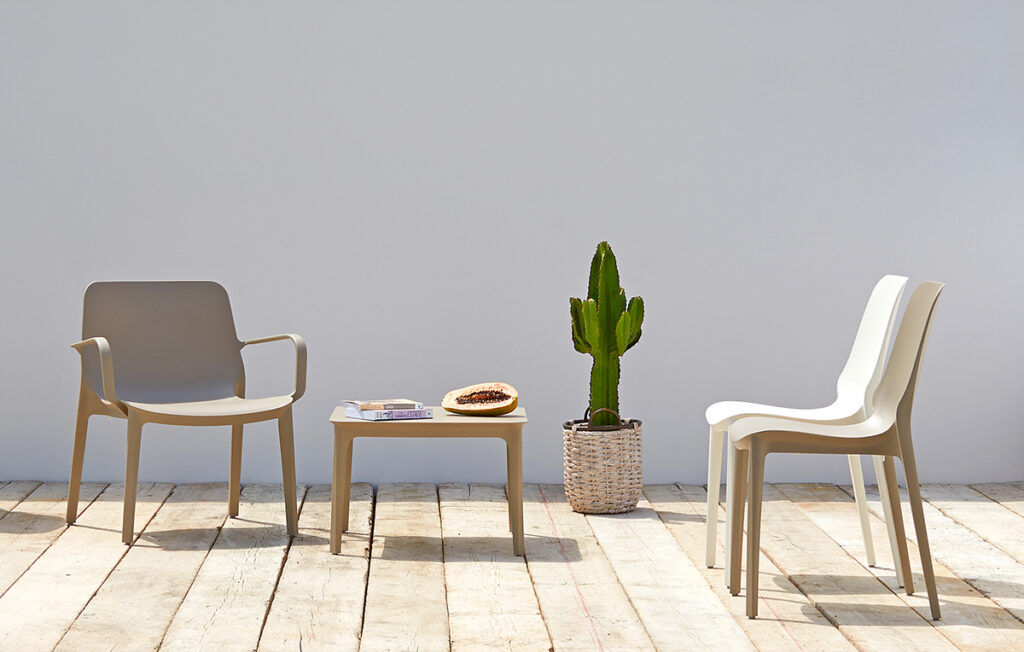
The 1960s: A Focus on Chairs
Starting in the 1960s, SCAB’s production of chairs became its main focus. Chairs, a core element of industrial design, combine functional performance, technical detail, and aesthetic clarity. SCAB’s chairs quickly adapted to various uses, from residential to contract to outdoor settings. Recognizing the potential of plastic in furniture, SCAB updated its production processes to make plastic processing a central expertise. Specializing in thermoplastic materials molding, SCAB has gradually incorporated steel, wood, and fabric to meet customization demands from the contract sector.
Over the years, SCAB’s manufacturing capabilities have evolved, always upholding the principle of creating well-made, durable objects. In a constantly changing market, SCAB continuously updates its production facilities to incorporate technological advancements and expand its market share.
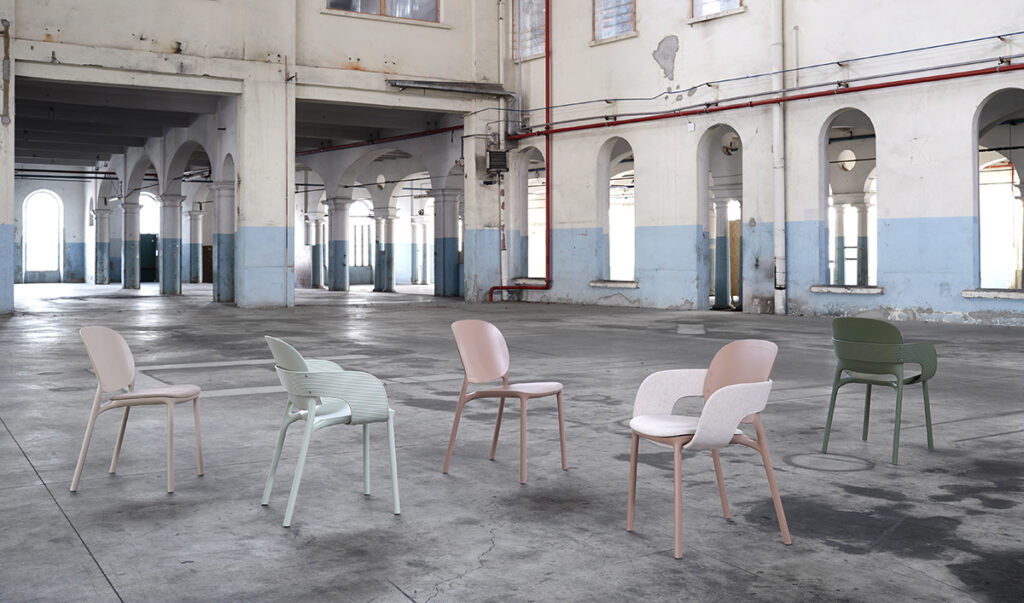
Timeless Designs and Accessible Quality
Despite the design world’s inclination toward elitism, SCAB remains committed to industrial seriality. During the economic boom, the efforts of small and medium-sized Italian businesses, including SCAB, made furniture a tool for societal growth and renewal. This tradition continues today, with SCAB producing accessible products that do not compromise on quality or the aesthetic and technological potential of each creation.
SCAB’s designs are sinuous without ostentation and colorful without excess, fitting seamlessly into both historical and contemporary minimalist spaces. Free from nostalgia and ostentation, SCAB’s furniture is noted for unexpected details, timeless freshness, and a feeling of hospitality. This is the highest recognition for SCAB—a design that satisfies, cheers up, and lasts.
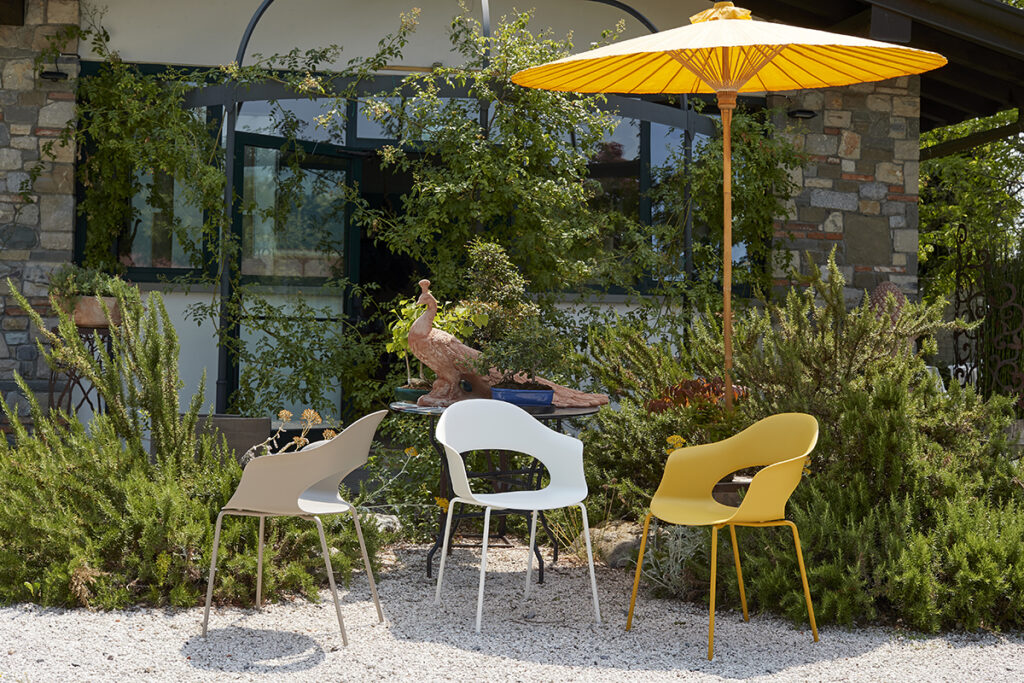
SCAB’s Configurable Data in pCon: Enhancing Design Projects
We are excited to announce that SCAB’s configurable data is now available in the pCon community. This integration offers professional interior designers and architects a new set of product solutions to enrich their interior design projects. You can use SCAB’s data in all pCon modules – pCon.planner, pCon.basket, pCon.facts, and pCon.box.
Benefits for Architects and Interior Designers
- Easy Access to Comprehensive Data: With SCAB’s data in pCon, you can easily access detailed product specifications, prices, materials, and customization options, streamlining the design process.
- Enhanced Visualization: Use pCon’s advanced visualization tools to see how SCAB’s furniture fits into your design projects, allowing for more accurate and compelling presentations to clients.
- Customization and Flexibility: Quickly configure SCAB products to meet specific design requirements, ensuring that your projects are both unique and tailored to your client’s needs.
- Improved Efficiency: Save time with efficient data management and seamless integration into your existing design workflows, reducing the need for manual data entry and potential errors.
- Stay Updated: Access the latest product updates and innovations from SCAB, ensuring your designs incorporate the newest trends.
By incorporating SCAB’s configurable data into pCon, you can elevate your design projects with high-quality, customizable solutions that reflect the company’s dedication to functionality and aesthetics. Explore SCAB’s offerings in the pCon community today and transform your design vision into reality with greater ease and precision.
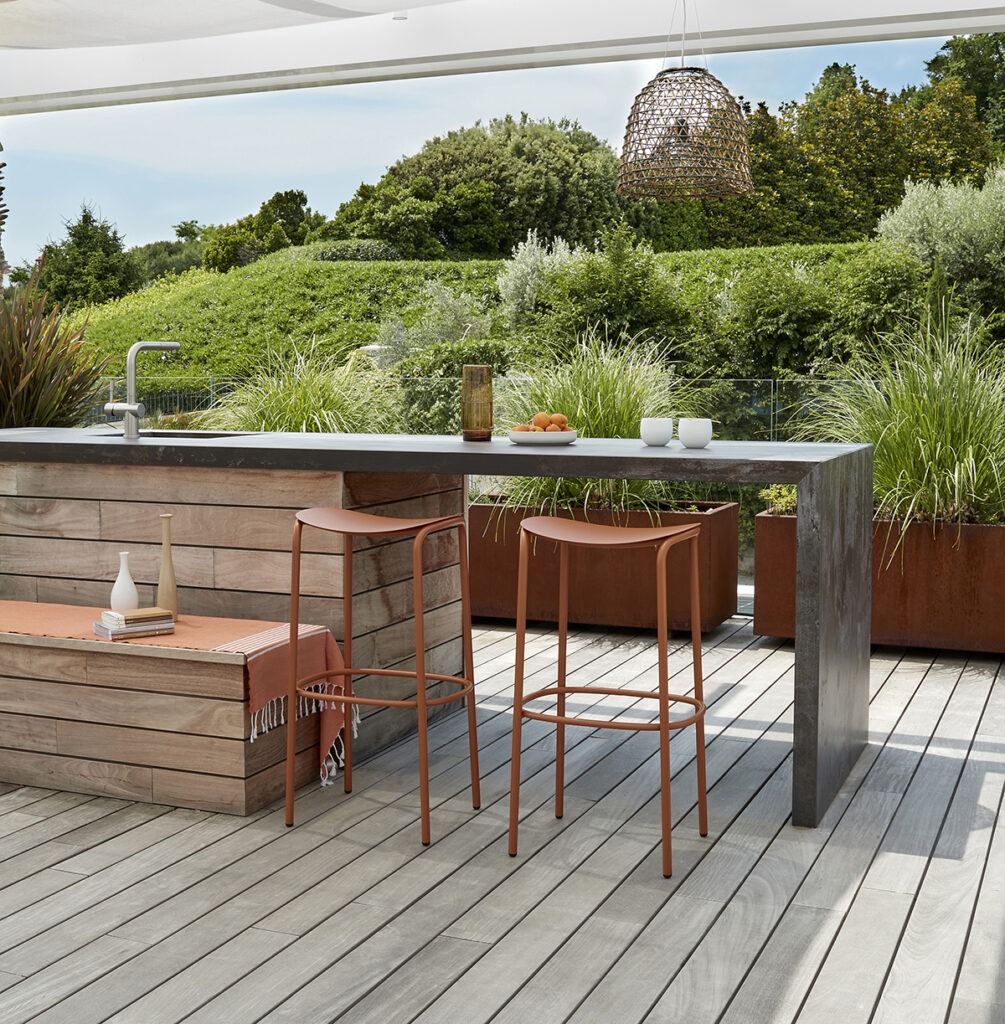
Product Highlights: SCAB Collections
Explore SCAB’s offerings in the pCon community today and transform your design vision into reality with greater ease and precision.
Here’s a brief overview of the initial collections you will find on SCAB’s catalog:
- Dress_Code: Armchair inspired by haute couture, playing with color combinations between structure and seat, indoor and outdoor fabrics patterns, and upholstery.
- Hug: This collection features comfortable and stylish chairs that embrace the user, providing both support and aesthetic appeal. Ideal for cozy seating areas and public spaces alike.
- Si-Si: Eclectic, chameleon-like, and multi-material, Si-Si is a smart chair that balances indoor and outdoor functionality.
- Lisa: Inspired by the 1950s, this collection blends vintage charm with modern materials. Lisa chairs add a touch of nostalgia to contemporary spaces.
- Lady B: A sleek and modern chair collection characterized by elegant curves and high comfort.
- Trick: A barstool with a minimalist yet expressive and joyful design, featuring a comfortable and welcoming seat.
- Sai: Known for its minimalist design, Sai chairs are lightweight and stackable, making them ideal for both indoor and outdoor use.
- Ginevra: A robust and elegant seating collection designed to withstand outdoor elements while providing maximum comfort and style.
- Brezza: An armchair by Alessandro Stabile, combining solidity, resistance, and elegance for outdoor comfort.
- Flap: Featuring a unique modular design, the Flap collection includes armchairs, poufs, and chaise longues that offer flexibility and comfort in various configurations.



